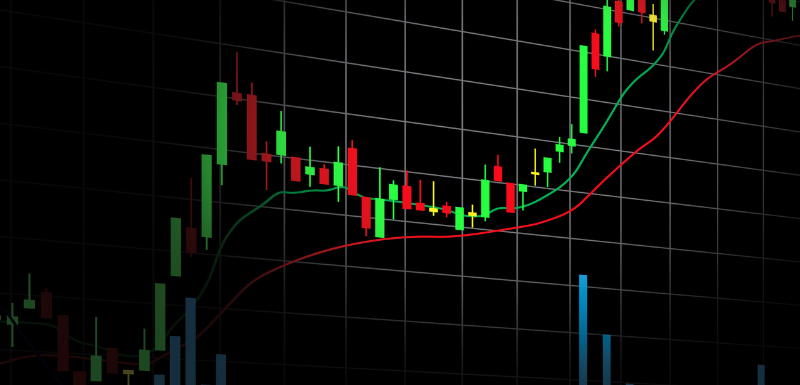Upcoming Lok Sabha Elections: Do They Warrant Any Change in Your Portfolio And Strategy?

India will be heading to Union Elections in the months of April and May. The results will be announced on 4th June 2024.
India will be heading to Union Elections in the months of April and May. The results will be announced on 4th June 2024. The ruling party will be seeking a third successive term. Whether the voters will oblige or not remains to be seen. Among the voters are many investors wondering what should they do with their portfolio and investment strategy in the run up to the elections. In this article, we will look at data on how stock markets have performed before and after elections. We will also discuss whether you should make any changes in your portfolio and investment strategy.
How Does Lok Sabha Election Affect the Stock Market In India?
Union elections usually happen once every five years and are undoubtedly a big event. As a result, there is an increase in volatility in the run up to elections and may continue for some time after the results are announced. Let us look at how stock markets performed one year before and after the elections.
Stock Markets: One Year Before and After Elections
|
Election Result Date |
6 Months Before |
6 Months After |
1 Year Before |
1 Year After |
|
6th October 1999 |
31.61% |
3.60% |
60.91% |
-12.88% |
|
13th May 2004 |
9.09% |
10.46% |
82.40% |
19.49% |
|
14th May 2009 |
26.50% |
41.91% |
-31.90% |
43.14% |
|
16th May 2014 |
18.25% |
16.27% |
19.13% |
13.28% |
|
23rd May 2019 |
10.95% |
3.99% |
13.01% |
-20.97% |
(Source:https://www.moneycontrol.com/news/business/personal-finance/forget-elections-india-growth-story-will-carry-equity-markets-over-the-next-decade-11855331.html)
Note: The above returns are for the Sensex 30 Index
The above table shows how, inspite of the volatility, the stock markets have been buoyant before and after elections except for three occasions. On all three occasions, the markets were in the red due to reasons other than election results.
- In the one year before 14th May 2009, the Sensex gave a negative return of 31.90%. During this period, the markets were dealing with the after effects of the US subprime crisis that blew up in 2008.
- In the one year after 6th October 1999, the Sensex gave a negative return of 12.88%. During this period, the markets were dealing with the after effects of the dot com bubble that burst in 2000.
- In the one year after 23rd May 2019, the Sensex gave a negative return of 20.97%. During this period, the markets were dealing with the after effects of the Covid-19 pandemic and the resultant lockdowns that were declared in March 2020.
Should You Change Your Investment Strategy During Elections?
In the above section, we saw how stock markets have given positive returns on most occasions, six months and one year before and after election results. There have been some instances of negative returns, but there were not because of election results. Hence, even though there is high volatility in the stock markets before and after election results, there shouldn’t be any change in your investment strategy.
Will the Election Impact Your Investments?
In the past, there have been instances when the election results have not been as per stock market expectations. For example, in 2004, the market expected the NDA Government to retain power. However, they lost, and the UPA Government came to power. Post results, it led to a big fall in the stock market. But, with time, the markets recovered and went on to make new all-time highs.
So, you should continue with your investments as it is in the run up to the elections and even after the results are announced. Rather than focusing on the short-term impact of election results, you should focus on your long-term goals. Continue investing through systematic investment plans (SIPs) towards your financial goals.
Nifty’s Wealth Creation Journey Amidst Elections
The Nifty 50 Index was launched in April 1996 with a base value of 1,000. As of April 2024, the index is trading around 22,500 levels. During this journey of 27 years, the stock market has seen several State Legislative Assembly and Union Elections. Several election results were contrary to stock market expectations and led to a lot of volatility and big corrections. However, with time, markets have always taken the election results in their stride and gone on to make new all-time highs.
During these 27 years, irrespective of election results and so many domestic and international adverse events, the Nifty 50 Index has multiplied investor wealth more than 22 times. The mid-cap and small-cap indices have given even better returns during this period.
Should You Make Changes in Your Portfolio During Elections?
In the earlier section, we discussed how you should not make any changes in your investment strategy due to the upcoming elections. But, should you make any changes in your investment portfolio in the run-up to elections? The answer again is "NO".
You should always follow asset allocation for your investment portfolio, irrespective of elections and other events. The asset allocation can be based on your financial goals, investment tenure, age, risk profile, etc.
For long-term financial goals, where the investment tenure is more than five years, it is recommended that you have higher exposure to equity mutual funds. Within equity mutual funds, you can focus on large and flexi-cap mutual funds. Where the investment tenure is in the 7–10 years range or even higher, along with large and flexi-cap mutual funds, you can add some exposure to mid and small-cap funds.
Along with equity mutual funds, you should have some exposure to fixed income and gold. Fixed income provides stability to your overall portfolio when equities are volatile and undergoing a correction. Gold acts as a hedge against inflation. It also acts as a safe haven during uncertain events like geographical wars, trade wars, pandemics, demonetization, etc.
Don’t Let Election Results Come in the Way of Your Long-Term Financial Planning
The Finance Ministry expects the Indian economy to grow from the current $3.7 trillion to $5 trillion by 2028 and further to $7 trillion by 2030. The Government expects India to become a developed economy by 2047, by when the GDP is expected to be $30-35 trillion. So, there is a massive runway for economic growth ahead for the Indian economy.
On the way to achieving these GDP numbers in future, there will be tremendous wealth-creation opportunities for equity mutual fund investors. Equities can help you create wealth and fulfil your financial goals. Hence, you should focus on your financial goals and continue investing towards them. Don't let the short-term volatility due to election results come in the way of your wealth creation. In short, the upcoming Lok Sabha elections don't warrant any change in your investment strategy and investment portfolio.
Your Investing Experts
Relevant Articles
Difference Between Sensex and Nifty: A Simple, Clear Explanation
When people talk about the Indian stock market, two names appear everywhere: Sensex and Nifty. They are the most widely tracked market indices in the country. Yet many investors still look for a clear explanation of the Sensex and Nifty difference, how each is calculated, and what companies form part of these indices.
Understanding Foreign Institutional Investors (FIIs) and Their Role in the Indian Stock Market
Foreign Institutional Investors (FIIs) are among the biggest movers of the Indian stock market. Their buying or selling patterns often set the tone for market sentiment, liquidity, and long-term growth, making them vital to understanding how global money shapes India’s financial ecosystem.
Election Results Shock Markets: Does Asset Allocation Make Sense in Times Like These?
On 4th June 2024, the stock markets fell sharply in response to the election results. While the markets recovered over the next few sessions, days like these emphasise the importance building a diversified portfolio. In this article, we will discuss what is asset allocation, the types of asset classes and their role, and how having a diversified investment portfolio can give better risk-adjusted returns.


.png)
